Magnetic resonance imaging is one of the most reliable and reliable methods of rapid diagnosis. The success of the examination consists of two components: the experience of a radiologist and the use of modern high-tech equipment.
If your doctor prescribes this examination and you have a referral, then you can do High resolution MRI 3 Tesla, at one of our diagnostic centers. All private hospitals in Spain usually do an MRI at 1.5 Tesla. This is not the highest resolution that exists. Many patients undergo MRI and receive the results on digital media, so YOU can always send images to your doctor, even in another country.
If you need to get a referral for an MRI in Valencia clinics and throughout the Valencian Community, you can make an appointment for a consultation with Dr. Korzhikov. You can also get a referral to get an MRI at any private hospital throughout Spain and a specialist consultation.
The use of contrast agents makes it possible to obtain high-quality 3D images of organs, including coronary arteries, as well as coronary artery bypass grafts. A huge advantage of MRI compared to other diagnostic methods is the absence of the need for hospitalization of the patient and the need to introduce catheters into the vessels when examining the heart and coronary arteries. Health care regulations in Spain set strict restrictions on the use of equipment for MRI diagnostics. In clinics Valencia using state-of-the-art equipment of the latest generation.
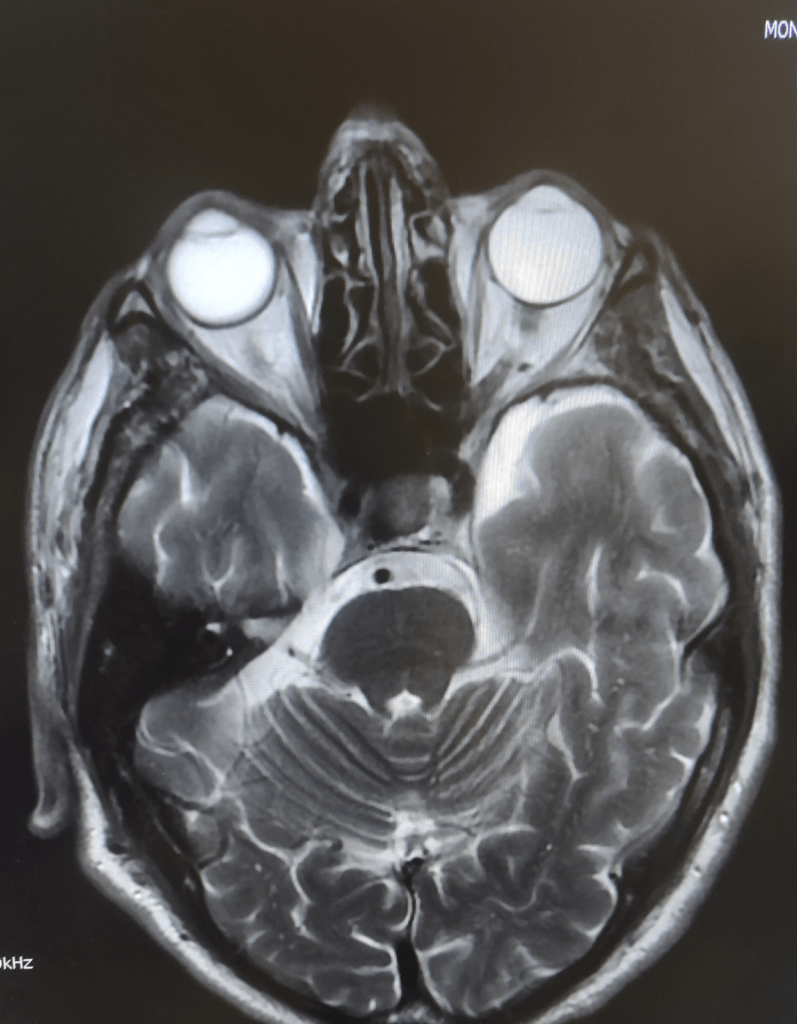
ADVANTAGES OF THE METHOD
Magnetic resonance imaging enables the diagnostician to obtain clear images of tissues and organs. Based on the images, the specialist establishes an accurate diagnosis and prescribes adequate treatment. Often, MRI diagnostics are prescribed to clarify the general state of health of the patient - in itself, the referral to the procedure does not at all mean the presence of a pathology.
Today, MRI is one of the most common, accurate and safe ways to detect a wide range of diseases. MRI is used to examine almost all organs and systems. An exception for the appointment of this procedure is only the alleged presence of diseases of the gastrointestinal tract and lungs - MRI is not used to diagnose this area.
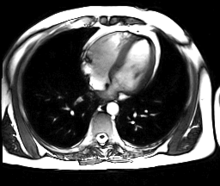
TYPES OF MRI
Specialists in Valencia carry out ALL existing types of MRI- diagnostics:
1) typical - these include:
- brain MRI,
- cervical MRI,
- MRI of the heart and blood vessels,
- MRI of the abdomen,
- MRI of the pelvic region,
- MRI of the joints.
2) Specialized - these include:
- urological examination,
- examination of the inner ear
- breast examination,
- virtual navigation (used in surgical operations),
- study of intracranial fluid,
- spectroscopy,
- functional tomography,
- magnetic resonance perfusion,
- high resolution examination of the knee joints.
The availability of modern equipment allows you to perform specialized MRI examinations that are not available to patients in other countries.
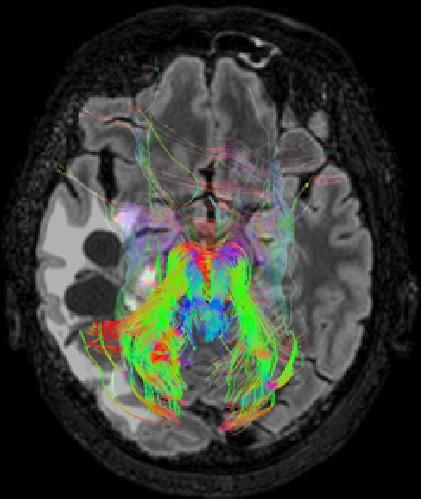
TYPES OF CONTRAST
In diagnostics, several types of contrast agents are used, which can be divided into three large groups:
- contrasts based on iodine,
- contrasts based on barium salts,
- contrasts based on gadolinium.
The first two types of drugs are still used in some MRI machines, but gadolinium contrast agents, a new generation of drugs, are successfully replacing them. Gadolinium preparations are safer and provide maximum image accuracy.
Speaking of contrast agents, it should be noted the importance of using safe contrastsespecially for patients with renal insufficiency. Based contrasts gadoliniumstudies show that they are much less likely to cause allergic reactions. In addition, the stable compound of gadolinium makes it possible to carry out MRI diagnostics of pregnant women with minimal risks to the health of the fetus.
Experienced radiologists, qualified staff, modern equipment and an emphasis on safety and efficiency are the key factors determining the success and reliability of MRI diagnostics performed in any clinic in Valencia.
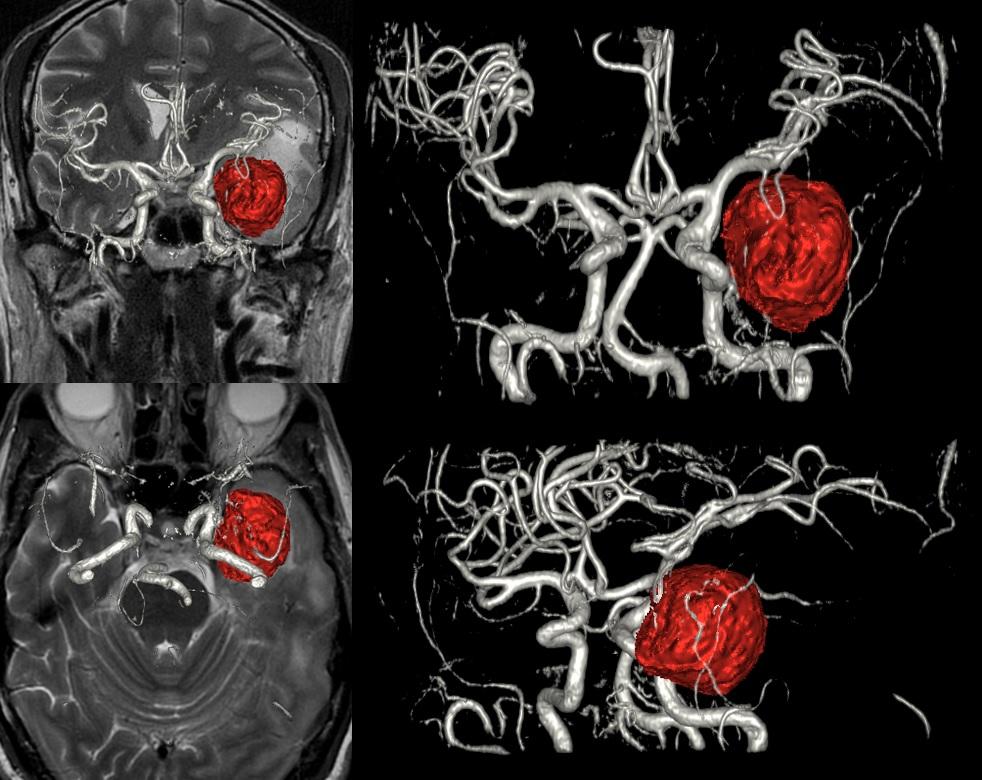
DETAILED INFORMATION ABOUT THE METHOD
Are there any contraindications for diagnosis? This question is most often asked by patients who are going to undergo an examination.
Yes, with all the safety, this technique has a number of contraindications. Examination is strictly prohibited in the following cases:
- presence of a pacemaker
- the presence in the body of other implanted electronic devices,
- the presence of metal implants in the skull.
In all other situations, magnetic resonance imaging is not contraindicated. However, experts recommend that you always inform your doctor before prescribing a diagnosis of the following data:
- Do you have any metal medical devices in your body?
- Are there other kinds of metallic objects in your body?
- Have you had previous heart surgery?
- Have you experienced sudden loss of consciousness?
- Have you been diagnosed with epilepsy?
- Women must report their pregnancy.
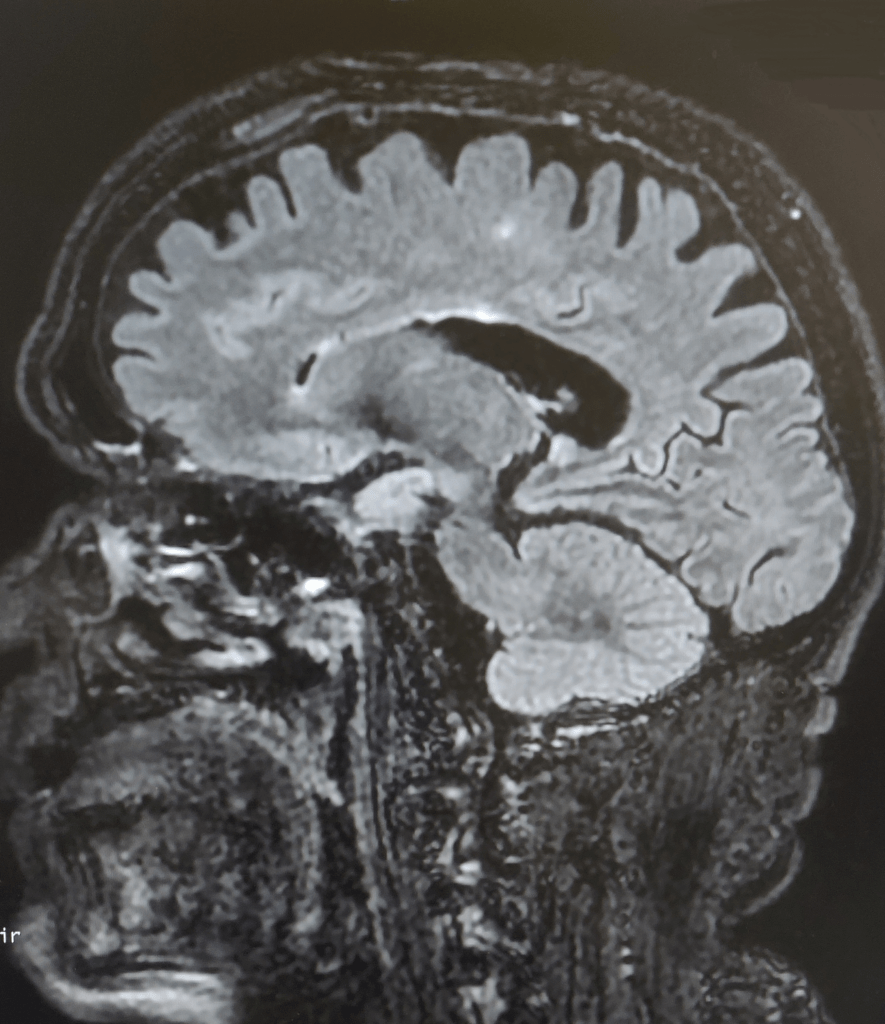
Price of MRI in Valencia
| All Types of MRI | MRI price |
|---|---|
| brain MRI | 265 |
| MRI of the pituitary gland | 265 |
| MRI of the eye orbits and optic nerves | 265 |
| MRI of the inner ear, temporal bone, auditory nerve | 265 |
| MRI of jaw joints, open/closed | 265 |
| MRI of salivary rods | 265 |
| MRI of cerebral vessels (Willis-TSA) | 430 |
| MRI diffusion of the brain | 430 |
| MRI diffusion brain 3D | 430 |
| MRI brain perfusion | 430 |
| MR spectroscopy | 430 |
| Functional MRI | 430 |
| Functional MRI of the sensorimotor zone | 430 |
| Functional MRI of the auditory zone | 430 |
| Functional MRI of the visual area | 430 |
| Functional MRI of the memory zone | 430 |
| Functional MRI of the speech area | 430 |
| Functional MRI of higher nervous activity | 430 |
| MRI of cerebrospinal fluid/hydrocephalus | 430 |
| 3D brain MRI | 695 |
| MRI of the inner ear 3D | 695 |
| MRI of the salivary glands and their functions | 430 |
| MRI of the cervical spine | 265 |
| Cervical vascular MRI (TSA) | 430 |
| MRI of cervical arteries | 430 |
| MRI of venous and arterial vessels | 430 |
| Sleep MRI/Sleep Apnea | 715 |
| Normal MRI/Sleep Apnea | 695 |
| MRI of cervical vascular dynamics | 860 |
| MRI diffusion | 430 |
| chest MRI | 265 |
| MRI of vertebrae, ribs and soft tissues | 265 |
| MRI of the brachial plexus | 265 |
| breast MRI | 430 |
| MRI of the armpit | 265 |
| MRI of the acromioclavicular joint | 265 |
| MRI of the heart | 430 |
| MRI of the chest vessels | 430 |
| MRI of the heart - study of the heart muscle | 430 |
| Cardiac MRI - pharmacological stress | 715 |
| MRI of the heart - congenital vascular paroxysms | 715 |
| MRI chest diffusion | 430 |
| MRI of chest vessels (veins, arteries) | 430 |
| MRI of the aorta | 430 |
| MRI of the pulmonary arteries | 430 |
| MRI of chest veins | 430 |
| MRI of the chest | 860 |
| MRI of the mammary glands and blood vessels | 860 |
| MRI dynamics of the mammary gland | 860 |
| MRI of the abdominal organs | 265 |
| MRI of abdominal muscles | 265 |
| Liver MRI | 265 |
| MRI of the kidneys | 265 |
| MRI of the adrenal glands | 265 |
| MRI of abdominal vessels | 430 |
| MRI of the arteries of the thoracic aorta, iliac arteries | 430 |
| MRI of liver vessels | 430 |
| MRI of the renal vessels | 430 |
| MRI diffusion of the abdominal cavity | 430 |
| MRI perfusion of the kidneys | 430 |
| MRI peritoneal / retroperitoneal | 430 |
| MR cholangiography | 430 |
| MR cholangiography using pharmaceuticals. stimulation | 430 |
| MRI urography | 430 |
| 3D abdominal MRI | 695 |
| Dynamic contrast MRI of the liver | 430 |
| MRI of the pelvic organs | 265 |
| MRI of the bone apparatus of the entire pelvic region | 265 |
| MRI of the hip joints | 265 |
| MRI of the lumbar spine | 265 |
| MRI of the pelvic vessels | 430 |
| MRI diffusion of the pelvic region | 430 |
| MR spectroscopy of the pelvis | 430 |
| Fetal MRI and pelvimetry | 430 |
| MRI of the pelvic joints | 430 |
| MRI of the female reproductive system (uterus, ovaries) | 430 |
| MRI of the human reproductive system (prostate) | 430 |
| MRI of the rectum | 430 |
| MRI defecography | 695 |
| MRI defecography-cystography | 715 |
| MRI defecography-cysto-colpography | 715 |
| MRI staging of rectal cancer | 430 |
| MRI staging of the male genitourinary system | 430 |
| MRI staging of the female genitourinary system | 430 |
| Shoulder/plexus MRI | 265 |
| Elbow MRI | 265 |
| MRI of the palm | 265 |
| MRI of the upper limb | 265 |
| MRI of the forearm | 265 |
| Shoulder MRI | 265 |
| Shoulder MRI | 860 |
| MRI of the arm vessels | 430 |
| MRI of forearm vessels | 430 |
| MRI of the vessels of the shoulder | 430 |
| Shoulder MRI | 430 |
| Elbow MRI | 430 |
| MRI of the wrist and hand | 430 |
| knee MRI | 265 |
| MRI of the tibia | 265 |
| MRI of the tibia | 265 |
| Foot MRI | 265 |
| Foot MRI | 265 |
| MRI of the ankle joint | 265 |
| MRI of the ankle joint | 265 |
| MRI of the lower limb | 265 |
| MRI of the lower limb | 265 |
| Comprehensive MRI of the entire lower limb | 860 |
| Comprehensive MRI of the entire lower limb | 860 |
| MRI of the vessels of the foot | 430 |
| MRI of the vessels of the foot | 430 |
| MRI of the femoral vessels | 430 |
| MRI of the femoral vessels | 430 |
| MRI of the vessels of the popliteal and lower segments | 430 |
| MRI of the vessels of the popliteal and lower segments | 430 |
| Arthro MRI of the knee joint | 430 |
| Arthro MRI of the knee joint | 430 |
| Arthro MRI of the ankle joint | 430 |
| Arthro MRI of the ankle joint | 430 |
| MRI of cervical vertebrae | 265 |
| MRI of the thoracic vertebrae | 265 |
| MRI of the lumbar vertebrae | 265 |
| MRI of the sacro-lumbar | 265 |
| MRI myelography of the cervical spine | 430 |
| MRI myelography of the chest | 430 |
| MRI myelography of the lumbar spine | 430 |
| MRI dynamics of the cervical joints | 430 |
| MRI cervical diffusion | 430 |
| MRI diffusion of the thoracic region | 430 |
| MRI diffusion of the lumbar | 430 |
| Whole body MRI for metastases | 715 |
| MRI of soft tissues for the presence of dystrophies | 430 |
| MRI of the vessels of the whole body | 1720 |
| Contrast | 100 |
| Anesthesia, sedation | 110 |